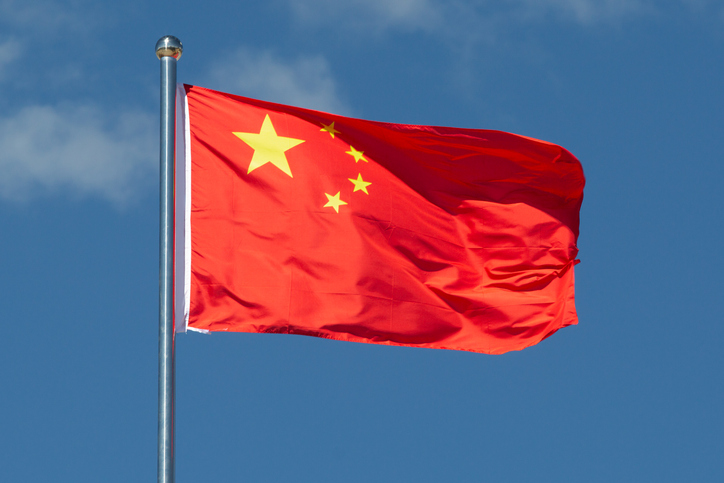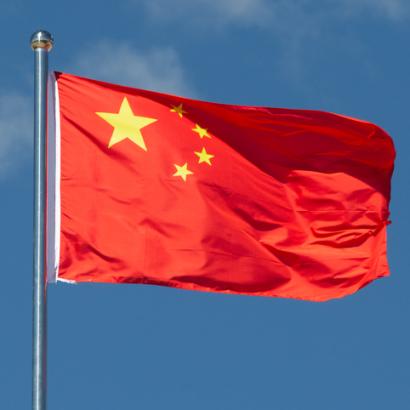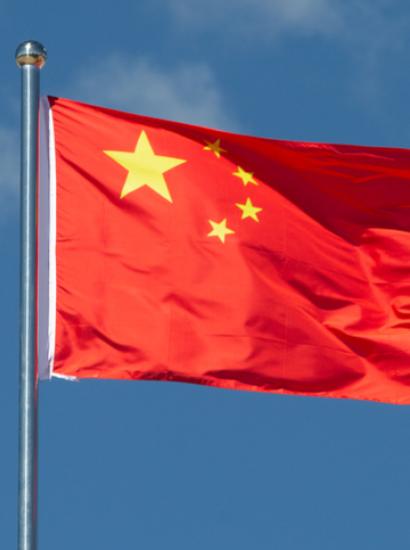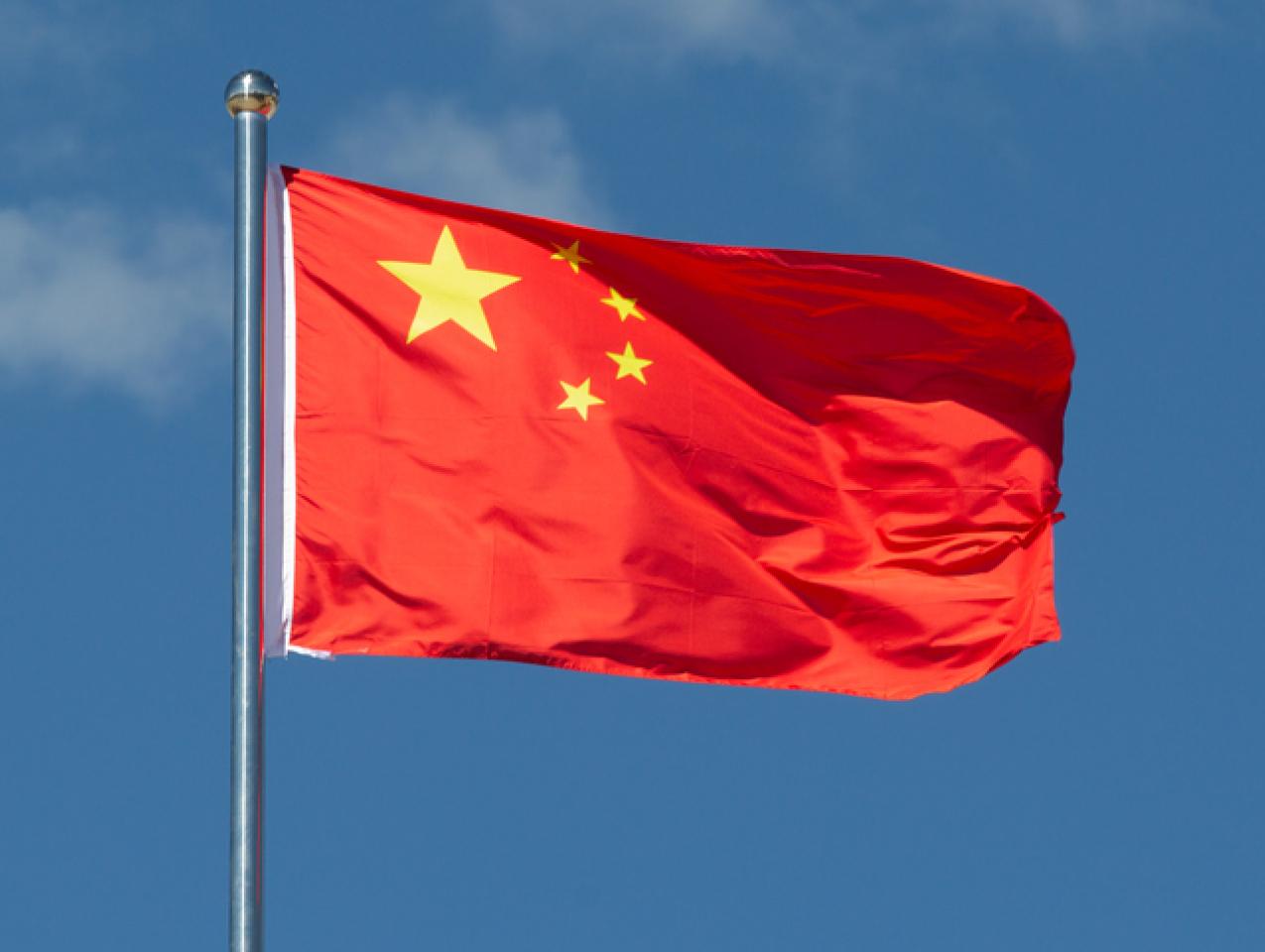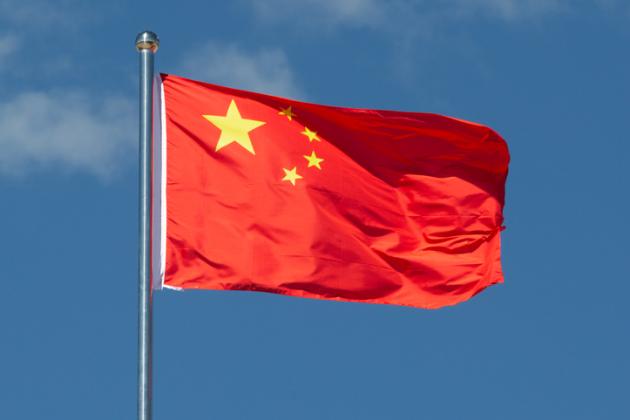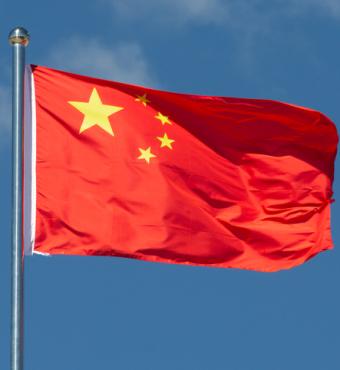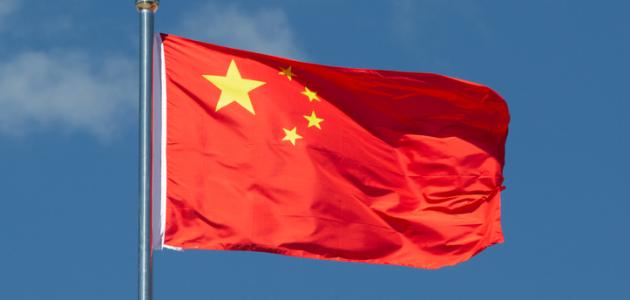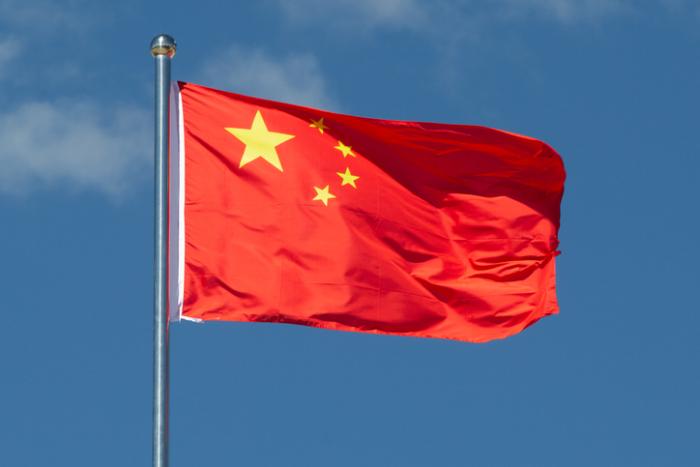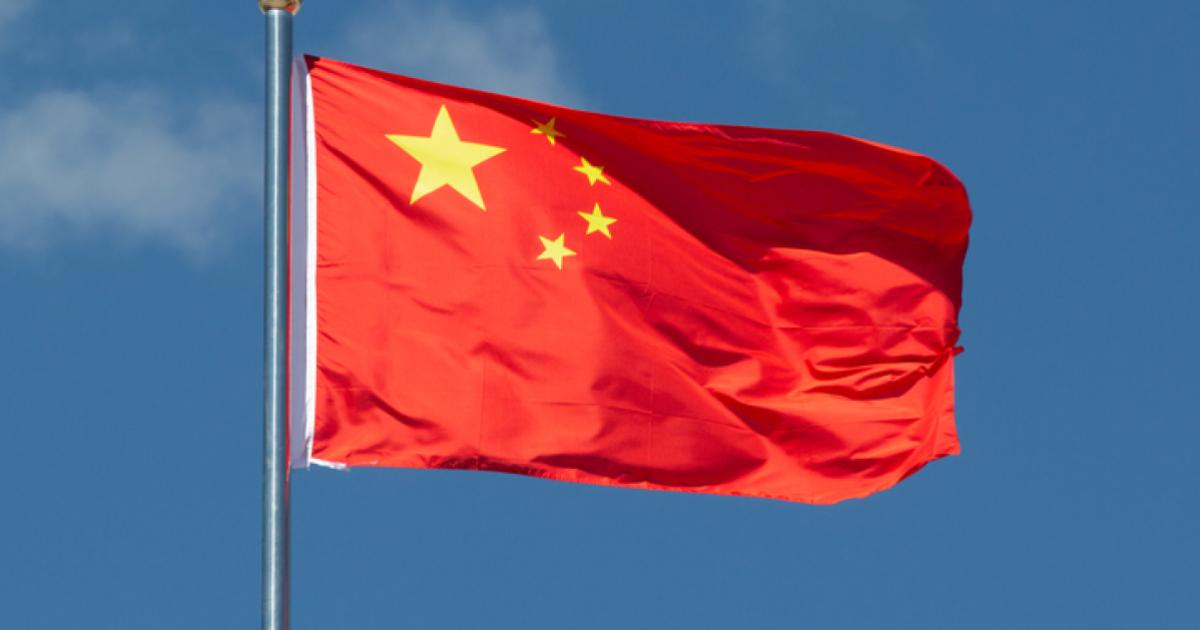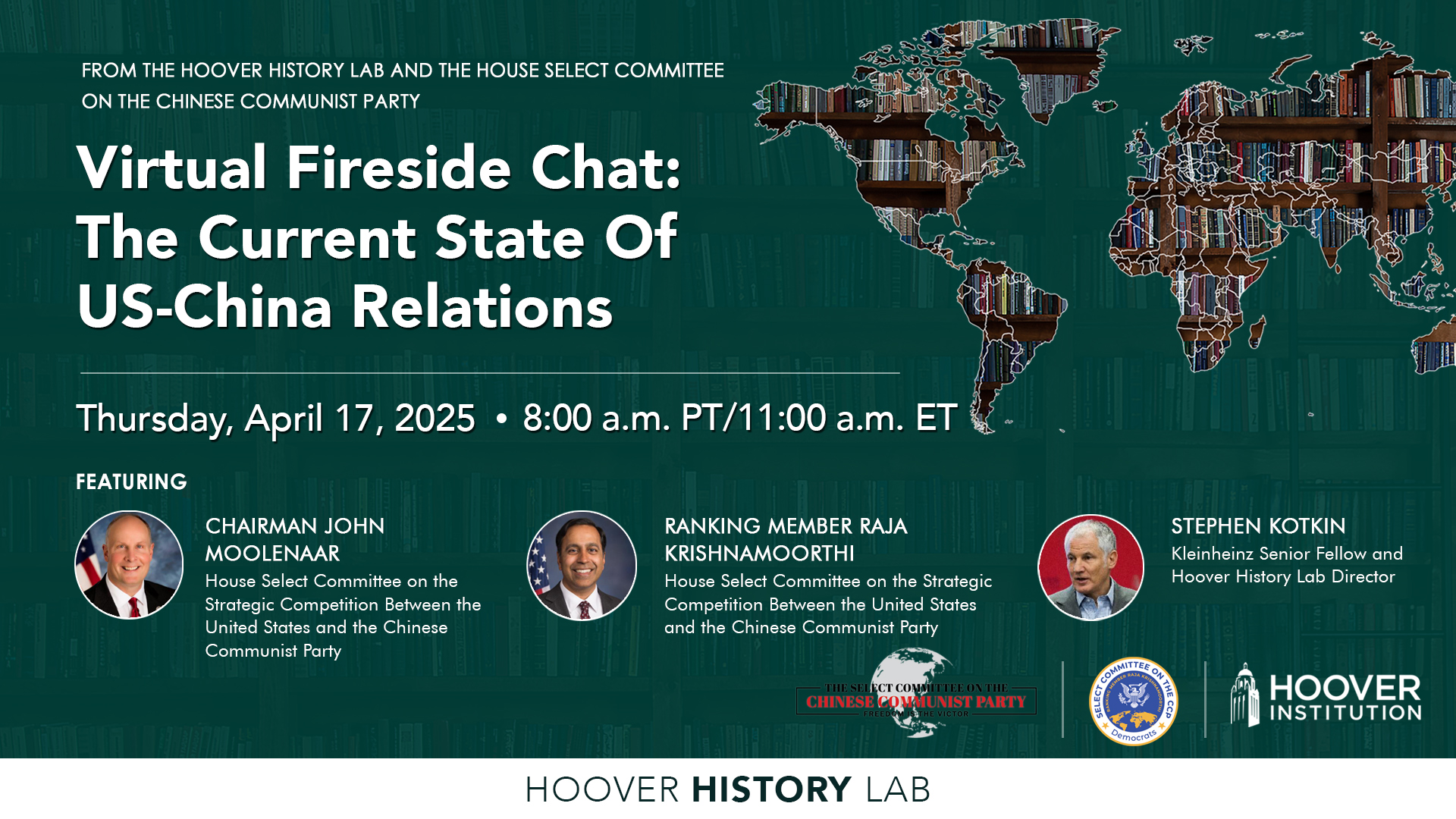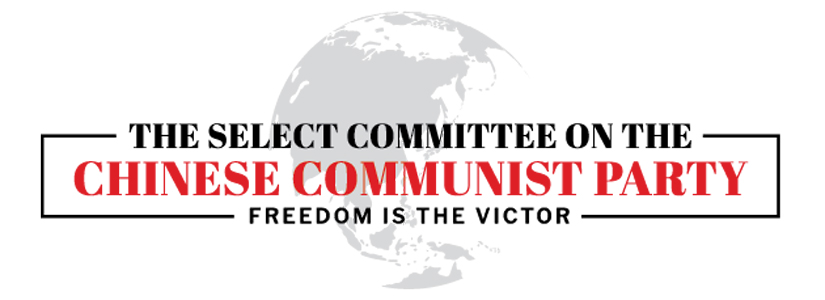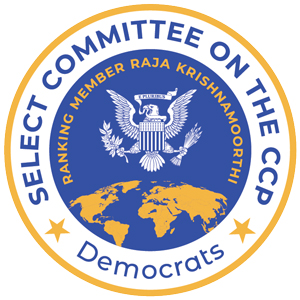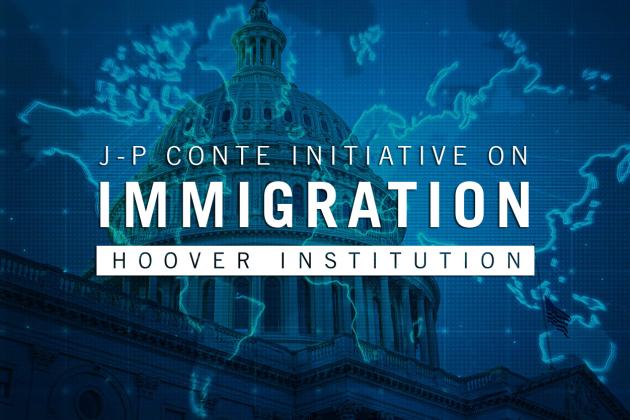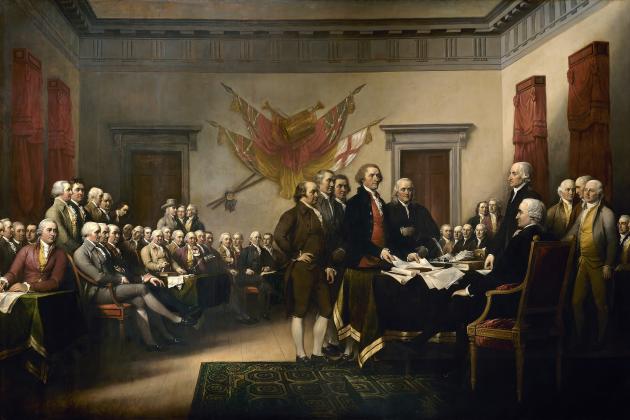The Hoover Institution held a Fireside Chat With Stephen Kotkin & US House Select Committee on China on Thursday, April 17th at 8:00am PT/11:00am ET.
>> Raja Krishnamoorthi: Thank you. Thank you very much. Thank you, Chairman, for allowing me to introduce both you as well as our distinguished guest today, Stephen Kotkin. Confession from the start. I'm a super fan of Professor Kotkin, one of the foremost historians in the world with regard to great power competition as well as authoritarian regimes, including in the former Soviet Union, the current Russian Federation and of course the Chinese Communist Party.
I should tell you, Professor Kotkin, my wife is also a super fan. She's an anesthesiologist. The joke is that we both put people to sleep. She's actually taking a little break in between operations from the OR to watch this particular webinar. I think a lot of people from hopefully around the community, both in Stanford, but also people who paid close attention to our committee are watching today.
I'll just say a little bit more about Professor Kotkin. He's a senior fellow at the Hoover Institution and a professor of History and International Affairs Emeritus at Princeton University. He has written award winning books on Joseph Stalin and the Soviet Union. I think that his insights with regard to the Chinese Communist Party and Xi Jinping in particular, based on his knowledge of this former Soviet Union, but also current affairs both in Russia and in China, are extremely insightful.
It gives me great pleasure to welcome him to our committee. And of course, I'd like to introduce our chairman and my friend John Molnar of Michigan as well.
>> John Moolenaar: Well, thank you, Raja, and it's always good to be with you. Appreciate your leadership for our committee. And it's just really important as we continue to work in a bipartisan way, to really focus on the threat of the Chinese Communist Party and the economic front, the military front, as well as human rights.
And you've been a great partner in this effort. And I really appreciate the opportunity to be with you today and also to engage with Professor Kotkin. And you know, one of the things that, you know, we talk about some, and I know Professor Kotkin's been a real leader on is, is the fact that we're basically in a second Cold War.
And that's shocking when you think of it. But at the same time, it's better than a hot war. And it says that there are things that we can do to prevent a hot war. And the stakes are different now. Back in the first Cold War, the tanks, missiles, the Iron Curtain were all very visible.
Now the challenge is more complex, it's economic, technology, information, ideology, all wrapped up in the ambitions of a regime that really seeks to reshape the global order on its own terms. And when you think about the days of the movies about the KGB and the Russian influence, that seemed very clear.
There's really no counterpart in the sense of the KGB villain, no household name for the China Ministry of State Security, but clearly the Chinese surveillance and operations are very clear around the world. In the United States, Professor Kotkin, you've argued that Americans need to consider a real sacrifice.
Higher prices, lost apps, national service. Because this is so serious, I want to dig into that more with you today and really understand your views on the threat as well as what we as Americans need to do to continue to bring light to this issue. But sacrifices we may need to make to continue to advocate and fight for our way of life.
So it's an honor to be with you all today and thanks so much.
>> Stephen Kotkin: It's a great honor, the invitation, Chairman John and Ranking Member Raja. And I commend you for the vital work that you're doing in our Congress. On behalf of us, all of us, the American people, let me offer just two opening bullet points to start the conversation and then we'll see where you guys want to take it.
The first bullet point will be about the nature of the system and its. Its specificity. And the second will be about its intentions, aims, motivations. There's something called a Leninist regime or a Leninist system, which is based upon the monopoly of the Communist Party and the insertion of the Communist Party into all institutions, public and private.
That's something that is unique to the Leninist regimes. Not every Leninist regime is identical. There are cultural differences and historical legacies to consider, but there's a basic pattern, and that's what I just like to clarify. In the first bullet point, you cannot be half Communist, just like you cannot be half pregnant.
You either have the full monopoly of the Communist Party or your system unravels. We saw this in Hungary in 1956 when they began to try to open up the political system to democratize the Communist Party's rule. We saw it in Czechoslovakia in 1968. We saw it with Gorbachev in the Soviet Union in the 1980s.
The Chinese Communist regime studies this history. It's one of the main subjects for all party members. It's a critical subject at the Party schools that all the cadre attend. So they know this history well. And the reason they study it is because they will not repeat it. That is to say, they will not engage in political opening because there is what we call no political reform equilibrium in a Communist system.
What I mean is that if you start to open up, there's no way to stabilize a reformed opened up Communist Party system because you lose your monopoly again, you can't be half communist. What that means is that you say we're going to have debate within the Communist Party, we're going to liberalize the system somewhat and allow some debate in the party.
And some smart aleck comes along and says, well, I want a different party, I don't want the Communist Party. And you say no, no, no debate within the party's monopoly. And that person and others begin to insist that yes, okay, debate, but debate means not retaining the communist monopoly but overthrowing it.
So it becomes a kind of unintentional suicide to engage in political reform in a Leninist system as Hungary, Czechoslovakia and the Soviet Union showed. Because again, there's no place where you can stop the process and be stable again with an opened or partially opened political system. Because people in the system don't want the communist monopoly.
If you open it up and let them talk about that, they want to form other parties. We've seen that again and again in each historical case. And as I said, the Chinese are experts on this history. Even economic reform, which is possible in a communist system presents a threat.
So, so they can do, unlike political reform, they can do a significant amount of economic opening, economic liberalization. They need the private sector like oxygen. It provides the wealth, it provides the jobs, it drives their GDP growth and their employment numbers. But they don't like independent sources of wealth and power, which is what the private sector gives you.
And so, they're constantly in this quandary of being desperate to encourage private sector dynamism, but being threatened, their monopoly on power, being threatened by the private sector's success, independent sources of wealth and power. Jiang Zemin tried to square this circle with what he called the three represents. He was the leader after Deng Xiaoping.
And by the three represents he meant that private sector business people would be allowed to become members of the party. In other words, we would co opt the private sector and regain control over it for the party, for the party's monopoly by admitting them into the party. This failed.
It only further increased the corruption around the party's position. And so Jiang Zemin's three represents bring the businessman into the party failed. And so predictably, Xi Jinping decided to put the party back into the private businesses as a form of control. Instead of co opting the businesses into the party, force private businesses to accept party supervision inside their boards and often with their higher management structure.
So that's the stage we are now. The upshot of all of this is that the Communist Party has self imposed limits on what it can do politically and how much it can open up. And that includes even the economy. So when we talked about the engagement policy and potentially transforming or helping to encourage the transformation of the Communist Party to a more open, potentially rule of law direction, we neglected to understand that that's suicide for a Leninist regime because you can't be half communist, you can't open up and survive.
To open up politically is a suicidal path and they're not going to commit suicide. In fact, Deng Xiaoping never promised that he would liberalize the system politically and he never did so. And Xi Jinping even more so. Okay, so that's my first bullet point, that we must be realistic about the nature of the system and its limitations if we're going to engage with them in diplomacy, deal making, etcetera what they cannot do is what we've been asking them to do for multiple decades, which is to open up their system politically and move towards rule of law, because that threatens the system's existence.
Okay, point number two, bullet point number two. What are the aims, the key goals of such a system? Well, clearly it is survival, the survival of the party's monopoly. And Xi Jinping, but not only Xi Jinping alone is committed to the survival of the party, no matter what, as anybody would be if they were in charge of that system.
The second goal, however, is to restore the perceived greatness of China more broadly. And so these two reinforce each other, make the world safe for the Communist monopoly, and remake the world not just so that the regime survives, but that China attains its rightful place in the world.
We have this debate in our country about what does China really want? What does Xi Jinping really want? Does he just want to regain China's dominance in East Asia? Does he want global power? And that's a false question, because the appetite, Chairman John and Ranking Member Roger, the appetite always grows in the eating.
And so whatever your initial aims might be, if you succeed in them, you get hungrier and hungrier and hungrier. The appetite grows in the eating. So whether Xi Jinping personally envisions East Asian dominance alone or a more global dominant position, if he achieves the first, he's on the way to the second.
And so we must assume as policymakers, as I said, that the appetite grows in the eating. Now, the competition with China, therefore, is not a misunderstanding. This is not something that we can talk through very easily. This is a fundamental clash of interests and values. The existence of the American system ipso facto threatens the survival of the Communist Party because it's a freer, it's an open, successful alternative.
So whatever US policy might be more aggressive towards China, less aggressive towards China, China has the same dilemma independent of US policy. US policy cannot fix this dilemma for the Communist Party, which is that if regime survival, let alone regaining China's perceived rightful place in the world, are the goals, the US stands in the way.
When the US was formed in the late 18th century, not long thereafter, China went into the tank. China had a long period of external, but especially internal depredations. And so for 170 years or so, from around 1800 to 1970s, China, as I said, declined, went into the tank.
That's exactly the time of the rise of America to superpower status. So China being the most powerful, largest economy in the world up through the late 18th century, goes into the tank. America rises. China comes out of that long tunnel in the 1980s, 90s, 2000s, and lo and behold, America is there now, it's a superpower.
When China had previously been the world dominant power, America, America didn't exist. And when America started, It was just 13 fledgling colonies on the eastern coast with a population of 3 million. Not the superpower that it is today. So for China, this dilemma is new, the dilemma of how to manage American power.
Just as it's important for us to understand. Understand how to manage Chinese place in the world. So again, we can't assume that this is a misunderstanding for them. It's existential that they somehow figure out how to make the world safe for their survival of their regime and how to make China attain its perceived rightful place.
And America stands in the way of that. And therefore, it's not our policy, it's the nature of the Chinese regime that is the challenge. And so we can be more accommodating, less accommodating, we still have a challenge. That's not to say we can't manage the Chinese regime better or worse.
We can certainly do better or worse with this challenge, but it's not a challenge that we can attribute to misunderstanding. So therefore, in conclusion to these two bullet points, let me just say that we have to share the world with China. China is not going away and America is not going away.
That's not the question. The question is what are the terms of how we're going to share the world? Are the terms the kind of internal repression that the Chinese practice at home, Is it Xinjiang or what happened to Hong Kong? Are those the terms of sharing the world with China?
Or can we, through better policies and investing in our strengths and in our allies and relationships, can we help build leverage so that we can get more favorable terms in the prospect of needing to share the world with this Leninist regime that is afraid for its survival and that has a hard time reconciling our position in the world with their survival?
Anyway, those are my opening remarks about the nature of the regime and how the appetite grows in the eating. Back to you.
>> Raja Krishnamoorthi: Thank you. John, do you want to start off the questions?
>> John Moolenaar: Well, first of all, thank you for those insights and a couple questions I wanted to ask you.
You don't use the term Marxist Leninist. I'm wondering if you would explain why that is you refer to Leninist. And then secondly, what lessons from the first Cold War with the Soviet Union should we draw and in this relationship with China.
>> Stephen Kotkin: Thank you. Excellent questions, predictably, Chairman John.
So Marxist Leninism sometimes gets us into trouble because people then respond by saying, well, they don't really believe in the Marxism, they're not really Marxists, they're just faking it. They're paying obeisance to the ideology, but they're really just about power and about getting rich. And so therefore, it's not really a Marxist Leninist regime the way that the Soviet Union was.
Ideology is dead. And so that's only a partial truth. A Leninist regime has a certain Structure as I outlined, whether people adhere to the Marxist ideology or not. And so you can be completely cynical about the Marxism and yet you can have a Leninist political structure with that communist monopoly on power.
Now we can debate the extent to which they adhere to Marxist ideology. And that debate is a worthy debate. But what I'm trying to do by calling it a Leninist regime is avoid the dismissal that comes from calling it Marxism-Leninism. Because then people say, aha, they don't really have that ideology.
Your analysis is wrong. Marxism has two components, fundamental components. One is anti capitalism and the other is what they call anti imperialism or anti Westernism, sometimes just reduced to anti Americanism. You can actually throw off the anti-capitalist part of Marxist and you can stay with the anti-imperialism, anti-American piece.
So all throughout the time that we thought that they were capitalists, not anti-capitalists, not really Marxists, they retained the other piece of Marxist ideology, which was the anti-imperialism, anti Westernism, anti-Americanism. In addition, the anti capitalism piece never went away fully. It was always there in parts of the party system.
And in fact, you can argue that Xi Jinping himself has more Marxist leanings than Jiang Zemin might have had in terms of the ideology. Again, they're both Leninist in the structure of the system. So we can have a fruitful debate, Chairman John, about the extent to which they're Marxist or not.
But I think there is no debate on whether or not it's a Leninist system. Now, on the Cold War and the first Cold War and the Soviet case, there are a couple of lessons. One is what are the options for great power competition? In other words, if you look at not just us with the Soviet Union, but if you look at history in the full sweep when great powers face each other, what are the policy options?
What's the full array? And there are only four. One is hot war, which you two have already alluded to, is the worst outcome. And that's certainly the case. Hot war between great powers is catastrophic even when you win. There were 55 million deaths. That's the minimum, the low estimate in World War II.
55 million is a really big number, it's a multiple of World War I. And if we, God forbid, ever got to World War Three, we would get a multiple of that 55 million. And so even if you win, you lose in some sense. Of course there is a victor and a vanquished in most wars.
But what I'm saying is that the cost of winning can even be intolerable. So avoiding hot war is the game that is the uppermost to manage. The second policy option is appeasement or what might be called capitulation where you keep giving in, giving in, giving in as Churchill said you get hot war anyway even if you try appeasement because again the appetite grows in the eating so you think you're reducing tensions but you're only encouraging the other sides appetite ambitions to ask and seek more and more and more.
So appeasement capitulation is the second after hot war. It also doesn't look very attractive to me. The third is what I call Pygmalion Pygmalion as you know from the George Bernard Shaw play is about finding a street urchin this girl who's a street urchin and doesn't have manners and putting her through etiquette school and and making her a lady or what might be called a responsible stakeholder in the international system.
This is highly seductive. It's very tempting for us to wanna transform from the outside these grand Eurasian civilizations that predate the. The United States by millennia. Whether it's Russia, Iran, or China, Pygmalion doesn't really work, it's an illusion. Because they don't want to be transformed by us into a responsible stakeholder of the international system, because that's our international system.
They want to shape the international system not for our benefit, but for their own benefit. So Pygmalion involves a degree of self delusion in a different way from appeasement, but also unsuccessful. So if you don't want hot war and you don't think appeasement works and you've seen the Pygmalion fail again and again, where you try to transform them to be more like you, responsible stakeholder in the international system, what does that leave?
Well, it leaves what you guys call strategic competition or what could be called Cold War. The beauty of Cold War is that it's not hot war. I think ranking member Raja made that very statement at the outset of this conversation. In addition, Cold War doesn't mean only tension, there was a tremendous amount of cooperation in the Cold War between the US and the Soviet Union, in science, in space, in many, many areas.
So you can compete, you can have high tension, but you can also manage the rivalry through Cold War. Cold War is an achievement. If we get to Cold War, that means we've avoided hot war and we're trying to manage this strategic competition in ways that are to our advantage.
Again, share the world. But what are the terms? The final lesson I would mention here is that we won the Cold War and the prize was an aggressive Russia. So the idea that you can win definitively and then you're done, that there's some type of hot war victory equivalent in a Cold War, is not true historically.
What you end up with is a different version of the strategic competition. Russia is much smaller geographically than the Soviet Union. It's much farther from Europe. It doesn't have the same size military industrial complex, it doesn't have the same size scientific and technical complex, the same number of Nobel Prizes, and yet, nonetheless, we find ourselves jaw to jaw with the Russians yet again.
So I think we need to understand with China again that managing, getting into a Cold war and achievement and managing the strategic competition doesn't necessarily mean that one day you declare victory and you go home and you're done. What it means is that you get to shape the external environment in ways that favor your system and your friends and that disadvantage them without provoking them into hot war, and that you don't become more like them in the process.
George Kennan's number one lesson was that if you become like the other side in competing against the other side's authoritarianism, you lose. Losing is becoming and acting more and more like them. They do censorship, we do censorship, right? They put government controls over parts of the economy. We put government control.
We need to play to the free and open society strengths, the dynamism, the market economy, the separation of powers, the free and open society. We need to be who we are if we're going to compete with them. And the more that we act like them in the name of competing like them, Ken and said, the less we're actually winning and the more we have to re evaluate what we're doing.
So compete every way we can in all the domains that Chairman John outlined, but make sure we play to our strengths. We remain who we are and we don't become like them in the name of competing with them. So there are a lot of lessons from the first Cold War, including the fact that Cold War is an achievement.
>> Raja Krishnamoorthi: Professor Kotkin, that was a very illuminating answer. I want to talk a little bit about Taiwan because we spent a lot of time on this committee talking about Taiwan and basically deterring the CCP from kind of moving coercively with regard to Taiwan. You've spoken extensively about, quote, unquote, rolling the iron dice and regimes making the ultimate kind of move on sovereign entities.
We saw that, obviously, with Ukraine and Russia. Russia invading Ukraine. And then interestingly, you've also talked about how historically, you thought, for instance, In World War II, Adolf Hitler was a gambler, whereas Stalin was more of an opportunist and a little more. Much more cautious. And you've seen various degrees of that in different authoritarians over the years.
How would you assess Xi Jinping? Where do you. Where do you put him on the spectrum in terms of is he more of a gambler, is he much more cautious and more of an opportunist? And recently he has basically called. He's purged so many levels of the pla, I've lost track.
He seems to fire somebody every other week under the guise of corruption. I'm not sure if it's true or whether he's just taking out people who might disagree with him politically. But nonetheless, can you just assess Xi Jinping from your standpoint in terms of history, but also in terms of what you're seeing right now today, and how we should be thinking about Xi Jinping.
>> Stephen Kotkin: Yeah, great question. Of course, many people are better placed than I am to evaluate him. I've never met him. Some many other of our analysts have met him or been in the same room with him and followed his career closely. So I'll just say the following, the answer to your question was contained in your question, calculated risk versus uncalculated risk, right?
The gambler versus the opportunist. So uncalculated risk, what we saw with Hitler versus more calculated risk, the opportunism that we saw with Stalin. They both want to grab what they can, but one wants to grab it without paying high costs, necessarily. And the other wants to grab it come what may, whatever the cost might be, including blowing up his own country and blowing up the world.
And so which one of those categories is Xi Jinping? Well, it's hard to say, because it's not like we have direct access into his thinking. It's not like he's broadcasting his views, he's sitting down and talking with journalists, or he's having town hall meetings like our congressmen have with their constituents.
Even the second and third echelon in the Chinese regime have a very hard time understanding what's going on inside the regime. The first circle, the first echelon, is very narrow. Xi Jinping doesn't necessarily reveal to them what's on his own mind, let alone to the second and third echelon.
He stays separate from them. They only have access to him when he summons them. There are very few constraints, direct regime constraints on him. And so figuring out his thinking is a challenge for the regime, inner circle for the members in the second and third echelon, but even in some cases higher than that.
It's gonna be hard for us as well. But for us, whatever his thinking might be, whether he's predominantly a calculated risk taker and an opportunist, versus he's willing to incur more risk, our goal is to increase the sense of risk for him. So often people talk about how if he takes back Taiwan and quote, reunites historic China, then he goes into the history books as the great leader who reunited China.
And I say, okay, what if he tries that and it fails? And he goes into the history books as the person who lost the Communist regime in China. What if he goes into the history books as China's Gorbachev, not because he tried to reform and open the party politically like Gorbachev did, and unwittingly committed suicide, but because he was excessively aggressive, took higher risks than he understood he was taking, and therefore put the regime at risk.
So our deterrence on Taiwan must be, as you understand better than anyone, better than I do, not only military. Yes, military is absolutely critical. Getting those Tomahawk missiles into Japan, getting the anti ship capabilities into theater, planning the hellscape like Admiral Papara, our Indo PACOM commander. And everything else that we're doing militarily is absolutely crucial, including in conjunction with our allies, the Japanese, the South Koreans, the Filipinos.
Very impressive work that we've been doing and that needs to continue. But also deterrence is political. We need to have the message to the Chinese regime and ultimately to the Chinese people that anything against Taiwan is to put the existence of the regime at stake. In other words, play in the political sphere, make sure that our deterrence is both military and political, that we message and we take actions, whether covert or overt, that show the Chinese leadership the Second and third echelon of the regime, Chinese business circles, the Chinese population, to the extent that we can reach them, that he's playing with the future of the Communist Party.
We can do this in so many ways. We need to up our game here in political deterrence. Ultimately, these regimes are about their own survival. And so if he thinks his regime will survive with an aggression vis a vis Taiwan, that's one calculus. If he thinks his regime is at risk over that because it could fail and because the regime could unravel if its legitimacy could be undermined, that's a different risk.
And that's the risk that we have to enhance and play in. Political deterrence has to be at least as energetic, at least as smart, and at least as aggressive across all fronts that we have now. Having said that, we're still dealing with one decision maker. We're still dealing with one guy making $100 trillion decision effectively.
And so ultimately, we have to be ready should that decision not go the way we hope. But in the meantime, we can affect that decision by raising the calculus of risk in the minds not just of him, but all the interest groups and the society at large. What that means is that we can't do this alone.
Just like I adhere to Matt Pottinger and Liz Economy's views on Xi Jinping and the nature of the regime, our colleagues at Hoover, Matt Pottinger and Liz Economy. I also adhere to Kurt Campbell and Rush Doshi's understanding of, most recently in the new edition of Foreign Affairs, of how we need to aggregate our power in order to manage this challenge.
We are a superpower across the board, an economic superpower, a military superpower, a free and open society, an energy superpower, soft power superpower. But we have something nobody else has ever had in world history. We're an alliance superpower, we're an alliance, friends and partners superpower. We have nearly 80 treaty relationships with other countries, some multilateral, some bilateral, not all of them are at the level of the defense pact.
But nonetheless, we just have a huge number of people who are voluntarily entering into relationships with us that carry mutual obligations. Yes, they need to be enhanced, they need to be revisited, in some cases to be enhanced, and they need to be brought into 21st century conditions, whether that's on the digital side or other sides.
Yes, there needs to be a rebalancing of responsibilities. All of that is fundamentally true, that you can't just stand pat with your relationships as if they're just going to continue on autopilot. But that is also a superpower that the Chinese, by the way, do not have and never will have because there's no trust inside authoritarian regimes, let alone between them, in order to have mutual obligations in a crunch moment, we have that kind of trust in our relationships.
So I'm very optimistic that we can do this right, rebuild the military industrial complex and get that military deterrence right that you guys are working on, but enhance much more energetic on the political deterrence and talking about that risk calculation in their face so that they understand the level of risk, the existential risk for the survival of their regime.
That's what gets their attention.
>> John Moolenaar: Well, thank you. Professor Kotkin, just to build on your comments, does. The policy of strategic ambiguity, does that lessen our capabilities? Does that deter our ability to message clearly on the political front in this regard?
>> Stephen Kotkin: Very, very good question. Again, as expected.
Chairman John. So the status quo works for us, it's the Chinese Communist regime that's trying to change the status quo. The status quo is our victory. Taiwan is a self governing entity. It is democratic, vibrant, open society and economy. And its people. Even before what the Chinese Communist Party did to Hong Kong, but more energetically after what happened to Hong Kong, its people don't want any part of Communist rule.
And so that's a win. Our job is to preserve the status quo. If we give the Communist Party in China a pretext for changing the status quo, we are playing into their hands. We have to be very careful. Whether we believe strategic ambiguity still exists, is a good idea, is working to our advantage.
What's working to our advantage, Chairman John, is the status quo. That's our high moral ground that we need to stand on. And it avoids providing a war rationale to the Chinese. So if we change the status quo on our side, then they can blame us. Then it's not them changing the status quo.
It's not them being aggressive, it's they're only reacting to what we're doing. So I'm in favor of the status quo, and I'm against providing a pretext for them to accuse us of changing the status quo, and therefore, acting aggressive. You know, with war, as we've seen in Ukraine, if you take it, you can't have it.
You get a smoking pile of rubble. What's happened in Ukraine is the coal mines are flooded, the agricultural fields are mined, the metal factories are flattened in rubble, the ports destroyed. A very, very tiny part of Potyomkin village has been rebuilt in those Russian occupied areas. But for the most part, they own a moonscape.
So you take it, you can't have it. So the goal of the Chinese Communist Party is not to take Taiwan by military force, because if they take it, they can't have it. It's to get it to have it. And so they want to take it without the military confrontation.
They want to just have it handed to them. For example, like Czechoslovakia was in 1938, the part of Czechoslovakia handed over at the Munich Pact. So for them, war is actually a problem too. Not just that it puts the regime at stake, but then they get a smoking pile of rubble.
And so we need to message that as well. We need to make it clear that they cannot win this militarily. They don't get Taiwan, they get rubble. And so we also need to be careful that not focusing excessively on the military aggression, of course, but focusing more, as your committee has been, on the quarantine slash blockade scenario where they enforce a customs post on the other side of Taiwan, not in the straits, but on the other side, and challenge us to run that blockade and challenge us on whether we are adhering to a one China policy or not by enforcing from their side the customs post.
Again, we can manage that. It's not going to be easy, but we can manage that. But we should be less focused on strategic ambiguity as the problem set and more focused on preservation of the status quo, which is a win. So if we elongate the status quo, if the status quo keeps getting longer and longer and longer, if the short term keeps getting longer, until it's the long term, that's a win for us.
That's the space in which we have to play. And all of our actions have to be geared to that enhancement, preservation of the status quo, not providing a pretext for them to attack. They will attack if to deny us an independent Taiwan in law. If Taiwan declares its independence in law, the Chinese will destroy Taiwan under the proviso if I can't have it, nobody can have it.
Pretty much what Putin is doing in Ukraine, right? Ukraine doesn't have another Ukraine, Putin doesn't actually need Ukraine, he can just wreck it and win that way. And China could do that vis a vis Taiwan, to deny Taiwan independence in law and to deny Taiwan role in the Indo Pacific with its partners like the United States.
So I want to avoid that outcome. I don't want to avoid that outcome through appeasement. I don't want to avoid that outcome through self delusion. I wanna avoid that outcome through strength in the military and the political sphere. But I want to talk about preservation of the status quo.
>> Raja Krishnamoorthi: Can I jump in, John?
>> John Moolenaar: Absolutely.
>> Raja Krishnamoorthi: You know, professor, we talk about the strategic competition. I want to ask just two related questions. What does winning the competition look like to you and what's realistically? And then secondly, there's so much economic turmoil happening within China right now.
I'm. Just curious, how do you view that in terms of how Xi Jinping prioritizes dealing with that for the purposes of preserving regime stability? Do you see any cracks whatsoever? Anything that would give you cause to believe that the CCP would be concerned for its own survival, to deal with that more than kind of moving aggressively on other countries, including its neighbors?
>> Stephen Kotkin: Again, that's one man making that $100 trillion decision, ranking member Raja, right? So it's very hard to give an answer to that because he's the only one giving that answer and he himself may not know what that answer is. Or that answer may be one answer today and a different answer tomorrow, right?
So hard to say. China is an unbelievable civilization, enormously successful, culturally phenomenal. The food, the art, the design, the economic dynamism, the entrepreneurialism of the people. It is a remarkable civilization. And what they've achieved in the last 40 years in the American led order, with America providing a tremendous lending hand to what they've been able to achieve.
But nonetheless, they've been able to achieve it, and we have to give them their due. They are very formidable, and as I said, they're not going away and they are a manufacturing superpower. And they have a gigantic pool of skilled labor that can move from one industry to another.
And they have skilled people in ways that we used to have, and we don't have as many now. We talk about bringing manufacturing back to the United States, but we don't talk about who's going to work in it. Where is the AI inflected vocational training? Where are the million new math teachers in the United States?
Math is our number one strategic import, which we import from South Asia, China, Taiwan, South Korea, Vietnam, because we don't do enough math at home. We only have a million and a half math teachers total for 340 million people, we need another million math teachers right now and we need vocational training.
AI inflected vocational training and so think about this, there are 33, 32, 33 million young people in the United States. 18 to 24, 32 million, roughly about 13 million of them are in higher education, so there's 19 million people who are 18 to 24 who are not in higher ed.
What are we doing for them? Where's the AI inflected vocational training? Are we populists or are we pretending to be populists? Moreover, of the 13 million in higher ed, how many are in the Ivy Leagues or the Ivy Plus? Including University of Chicago, including Stanford, but the Ivy Leagues as well, that's 100,000.
So we have a national conversation in education about 100,000 kids. They're great kids, they're amazing kids, I'm teaching them out here at Stanford, they walk on water. But I have 13 million in higher education, not 100,000 and then I have 19 million not in higher education. So winning is investing in those people, winning is investing in ourselves.
Winning is making sure that when we talk about rebuilding industrial capacity, we have the trained people for the 21st century to work those jobs, I don't have to tell you guys this. You remember that America, because Chairman John Reckon, member Roger, we grew up in that America, right?
My father worked in an embroidery factory and I went to school and here I am sitting in the Hoover Tower in the middle of Stanford campus in Silicon Valley. That's who we are, that's what we have to regain and remember and that's what winning looks like. If we do that, if we invest in ourselves, if we understand what made us great, and if we get to a point where our friends and allies.
And those rebalanced relationships are good for the 21st century, nobody can beat us, absolutely not. So winning is not planning an American flag in the middle of Chinese territory, it's not the Chinese vanish from the face of the earth. It's that America becomes America again. That's what winning looks like.
It's investing in ourselves, playing to our strengths, most of all being ourselves, not being like China, that's what I understand winning to be. As far as whether the Chinese are going to roll the iron dice or not, again, that's one guy making that decision. But on our side, it's a whole society making the decision of how to respond.
It's our universities, it's our scientific establishment, it's our Congress, it's our judiciary, it's our executive branch, it's our NGOs, it's our business community. Look at all the sources of power in the United States, the more that they are energized, the more that they are the level that they can be at.
The more we provide opportunity at home, an opportunity abroad for our friends and partners, the more we win.
>> Raja Krishnamoorthi: Wow, thank you Professor John, do you wanna close and or I can close as well.
>> John Moolenaar: Well, I just wanna say thank you, Professor Kotkin, and appreciate the Hoover Institution and all the work you're doing and the students who have tuned in today and really appreciate this discussion.
Very thought provoking and Raja, thank you for inviting me to be part of it.
>> Raja Krishnamoorthi: Well, first of all, I just want to say a big thank you to Professor Kotkin and the Hoover Institution for working with us. Thank you, Chairman John, and everybody for watching. I think that what is most striking about this conversation is that just in the past, let's say 80 to 100 years of history.
We can kind of glean lessons that need to be applied right now to both prevent a hot war, as the professor alluded to, but also to win the competition. And I think we can only do this on a bipartisan basis or nonpartisan basis, whatever you want to call it, we have to be united because I think that's in part the thing that the Chinese least expect about us.
Somehow they view us as hopelessly divided. I'll just close with this saying, I guess Wang Huning, who I guess is the Xi Jinping whisperer, he wrote a book titled America Against America. And we cannot expect to win this competition with the Chinese Communist Party if we end up being what Wang Huning described us as, tribal, partisan and divided.
And we have to play against type and be the opposite now more than ever. And so, John, thank you so much for your leadership in that regard. You're kind of leading the way and helping us be the best part of Congress that we can be. So if we can do that and be united in our approach with regard to the ccp, I think that our chances of winning this competition go up dramatically.
And Professor Kotkin, thank you for helping to hang a lantern on that and other important points today. And thank you to our audience for joining us.
Speakers:
Committee Chairman John Moolenaar, US Representative for Michigan's 2nd congressional district
Ranking Member Raja Krishnamoorthi, US Representative for Illinois's 8th congressional district.
Professor Kotkin, Kleinheinz Senior Fellow, Hoover Institution






